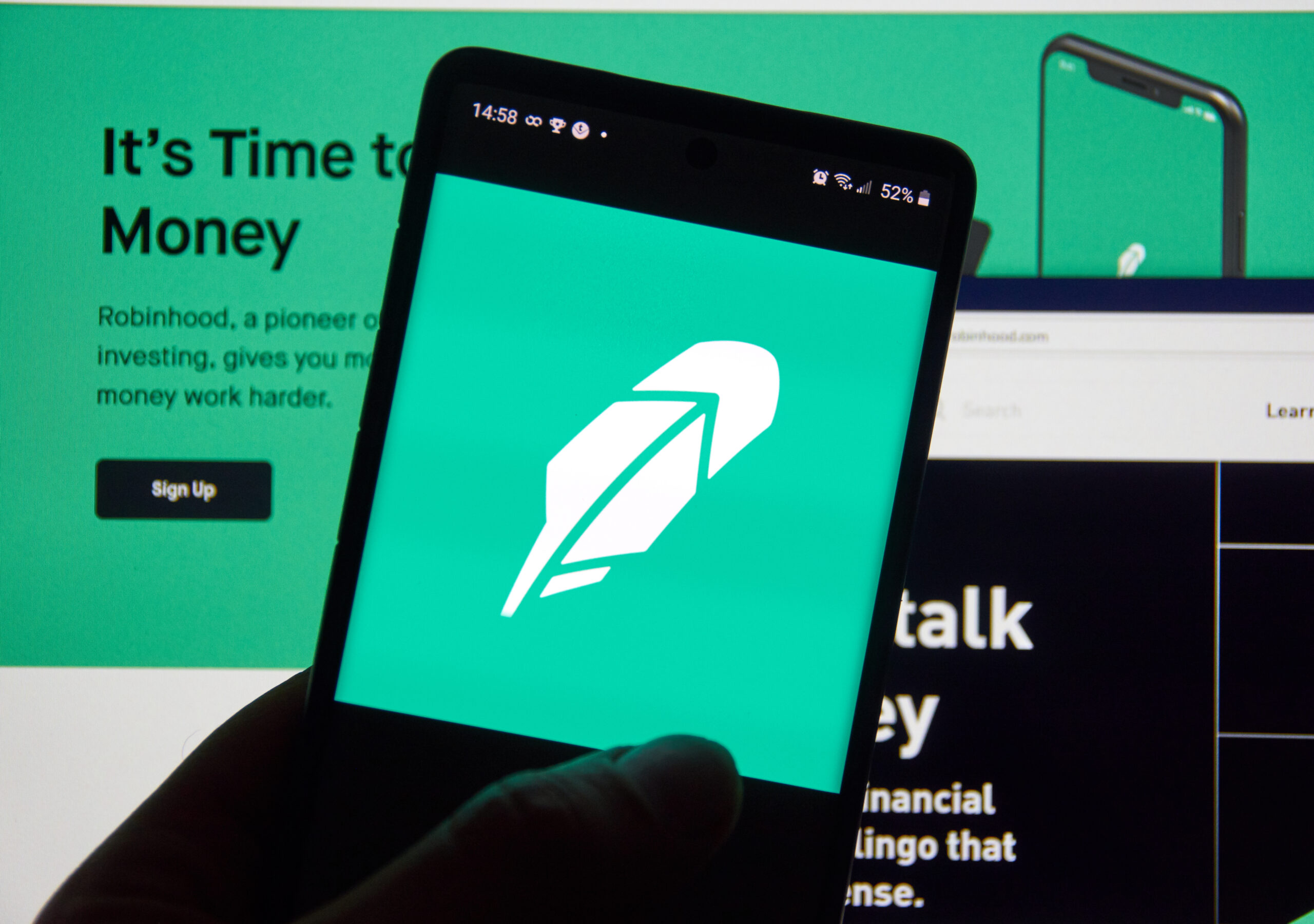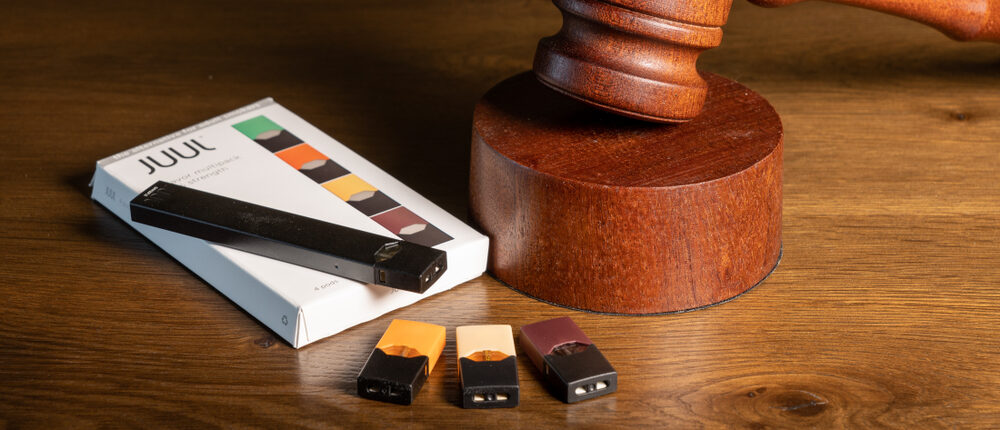The entire financial industry is shaking in its boots all thanks to the sudden realization individual investors have more power than they initially thought. But Wall Street isn’t going down with a fight, and one company is at the forefront on both sides: discount, app-based broker Robinhood. Caught in the middle, they made the choice to shut down the purchase of Gamestop shares, leading to millions of dollars of losses and even more millions of lost gains, and even allegations of corruption and collusion.
But that’s the thing: what most Robinhood users are upset about doesn’t even start to chronicle the magnitude of their betrayals: they’ve been screwing over investors to the tune of hundreds of million of dollars for years now, fighting against consumer complaints, fines, and lawsuits all along the way.
There’s a famous saying in tech: “if you’re not paying, you’re the product.” It’s no different with Robinhood: in 2020, the company made somewhere north of $500,000,000 dollars, with most of that coming from one of a few less-than-ethical sources. And the worst part is that they make just about every single effort possible to hide their revenue schemes from these retail investors. On February 1st, 2021 the brokerage is reported to have raised a venture capital round of 2.4 billion dollars, right as the investors who have fueled its success are losing millions of dollars due to the brokerage’s policies.
A Brief Recap of the Gamestop Short Squeeze and Robinhood’s Involvement
Just in case you’re not completely caught up with everything that went on surrounding the short squeeze and, more specifically, Robinhood’s involvement in the story, we’d like to give you a little bit of a rundown. If you’re already familiar with the short squeeze and Robinhood’s trading restrictions, feel free to skip down to the first way Robinhood screws you over.
The Gamestop Short Squeeze
First: the basics. With rumblings in mid-January and more news ramping up throughout the last week and a half, investors from the online forum /r/wallstreetbets managed to trigger a ‘short squeeze’ in which the price of video game retailer Gamestop skyrocketed, then was propelled higher and higher as retail investors realized the opportunity for the stock to spike once large funds had to cover their short positions.
By Monday, January 25th, the stock opened at around $100 per share and trading reached a fever pitch. While on a typical day of trading in 2020, under five million shares traded hands, by Thursday, trading volume approached 200 million shares a day. On Thursday, January 28th, trading reached a fever pitch and Gamestop memes were plastered across the internet. The shares had reached critical volumes, record prices, and complete internet saturation.
Where Robinhood Comes In
Robinhood is a commission-free (note, not free) trading platform that has helped enable small traders to participate in markets by lowering entry barriers for investing. Once Gamestop stock skyrocketed (at which point about 50% of Robinhood users owned Gamestop), they sent out a message to users that the stock was too volatile and prohibited the purchase of new shares, while still letting users sell shares.
This crashed the price initially, but also screwed users over by not letting them purchase shares and make money as the price rebounded. We’ll get into how unethical (and possibly illegal) this is later, but keep this in mind as you read about the other less-than-savory ways Robinhood makes money on their clients.
How Robinhood Screws You Over
Two lawsuits confirming misconduct, a 10 billion dollar valuation, an infinite money glitch, and one trading scandal later, the results are in: Robinhood makes money at the expense of their customers, and they’ve got a history of doing it in an unethical way that keeps customers in the dark.
Below, we’ll recount the many ways Robinhood makes money off of investors without disclosing the hundreds of millions of dollars they make in the process. Later, we’ll tell you what to do about it. From the possibility of cash class action settlements to using services that will treat you properly, you’re not powerless in this relationship.
The First Way Robinhood Screws You Over: Dubious Trade Routing
While investors are often attracted to the platform by the promise of commission-free trades, the fact is that the company makes money off of traders in an obscure way that traders pay for without even realizing it. It’s their main source of revenue, with the brokerage profiting to the tune of several hundred million dollars per year. They do this with a process called “payment for order flow,” in which orders are grouped together and then directed to different parties for execution. By grouping the buys or sells of shares together, Robinhood receives preferable treatment and can thus charge you one price while receiving another one from market makers. It’s typically done by large institutions but Robinhood has pioneered doing it by bundling retail investor orders together.
And while Wall Street in general has a history of taking advantage of customers, it’s not like this “payment for order flow” is a common trade practice by brokerages. It was pioneered by Bernie Madoff (yup, that one, of the world’s largest Ponzi scheme fame). In fact, Robinhood covers up the fact they make money this way; they were even sued in 2020 for providing “misleading information to customers” and lost.
Fortunately, regulators and lawmakers, in this case, are on the side of consumers. That 2020 court case was resolved with a whopper settlement of 65 million dollars. The SEC calculated a net loss to investors who used the platform of over 34 million, and that’s just between the years of 2015 and 2018. What’s even more disconcerting, is exactly who Robinhood works with to make money off of your trades. Their largest partner is Citadel, the very same hedge fund that invested in a nearly 3 billion dollar stake of Melvin Capital, the largest short seller of Gamestop and the main target of /r/wallstreetbets. That’s sure to raise eyebrows from Gamestop shareholders and SEC regulators alike, and we’ll see how it plays out over the coming months.
The Second Way Robinhood Screws You Over: Selling Your Data
Facebook, Google, Netflix, Amazon: it’s common knowledge that these companies make tremendous amounts of money off of your data. Robinhood, as a FAANG-aspirational company is no different. Along with selling trade routing to other institutional players, Robinhood sells order data to high-frequency trading (HFT) firms: stock traders that can make just a cent or two off of every trade.
By selling this info, especially as most Robinhood users are buying small lots of shares, these HFT institutions make money off of creating the markets for individual traders. At a small scale, Robinhood makes around 40 cents per trade, but if you approach high volumes the number is in the hundreds of millions. Looking for another layer of ‘ick’ to make you feel even worse about Robinhood? The founders came from HFT backgrounds, and SEC filings show that Robinhood makes about 10 times more money off of their customers than other firms who use this same practice. The company was even fined 1.25 million dollars by a brokerage industry regulator due to the fact that they didn’t seek more competitive prices on stock trades for their users.
The Third Way Robinhood Screws You Over: Market Manipulation
While math shows that RobinHood has predominantly taken money out of the pockets of investors via these unpleasant but more or less legal methods, recent events show they might be doing it illegally as well.
This is in regards to the restriction of Gamestop shares on Thursday, January 28th, and Friday, January 29th. Shares, over only a few hours, dropped from an all-time high of nearly $500 to less than $150. Why? Investors opened their trading apps and found that they could only sell, and not buy, a list of 50 separate stocks, with the biggest name being Gamestop.
The facts of the case are simple: there is one institution that controls the listing venue, thus truly halting all trading of shares of a specific company, and it is the New York Stock Exchange. They do this in extreme cases, such as when there’s extreme volatility (there are very specific rules in place for volatility events), when there’s evidence of fraud, or when they think there needs to be a material disclosure from company management.
The SEC, another institution that could have forced Robinhood’s hand made no demands from any broker-dealer, exchange, or any other financial services provider. So there’s no real material evidence that Robinhood was forced to comply legally, which begs the question: why did they do it?
RobinHood stated that Wall Street’s central clearing hub (the DTCC), an institution that controls most of the trades, raised collateral requirements in the trading squeeze to shield it from volatility. Robinhood found itself unable to cover these requirements and thus was allegedly forced to draw from lines of credit, and now to raise capital to meet these requirements.
Other brokerages that put trading restrictions on their clients back up these statements, saying their hands were forced by the DTCC. While they’ve got some supporting evidence it still begs some questions: why did Robinhood mislead their customers, saying it had to do with personal risk tolerance and not the central clearing hub? Why did they not have sufficient capital on hand? And why did it take so long to clear up the miscommunication?
A Bonus Screwover: Run-of-the-Mill Big Tech Shadiness
Robinhood’s real innovation isn’t zero-free commissions, it’s marketing. Robinhood is the first investing app with the same principles and philosophy of tech: get people on the platform, get them hooked, and systematically leverage users to maximize profits. As Robinhood makes more money the more its users trade, they use every mechanism in their arsenal to make sure they trade as much as possible.
Just think about their branding based around the heroic outlaw Robin Hood, who evened the playing field in feudal England by upsetting the status quo. Robinhood’s mission is to “provide everyone with access to the financial markets, not just the wealthy,” however they say nothing about how that access should be equal. In fact, they’ve come under steep flack for ‘gamifying’ the investment world, with a slick interface, push notifications regarding trading, and a daily highlight reel of top moving stocks, which just happen to be some of the riskiest stock plays out there.
That all serves a purpose, and it’s not to even the playing field for regular investors. At the end of the day, money still ends up in the pockets of Wall Street: Robinhood takes its cut, of course, so do the institutions that buy its order flow and the high-frequency traders that use its customers’ data. They’re no less a part of the financial establishment than any other big Wall Street player.
Mad at Robinhood? Here Are the Steps You Can Take to Get Back at Them
Plenty of retail traders are upset and disillusioned about the series of events surrounding Gamestop stock (and other volatile stocks) that have taken place in the last week, where it’s increasingly harder to believe that anyone in the finance industry has your best interests at heart.
Fortunately, while disappointing revelations came to light around Robinhood’s collusion, stock manipulation, and the overall restriction of free markets, we have learned one thing: the little guys, when they band together, are incredibly powerful. And while corporate bigwigs are doing everything to shut people out, it appears that some powerful institutions have retail investors’ best interest at heart. The SEC came out in support of small investors with the statement, “We will act to protect retail investors when the facts demonstrate abusive or manipulative trading activity that is prohibited by the federal securities laws.”
The SEC didn’t call out Robinhood by name, but politicians on both sides of the aisle did. “This is unacceptable,” congresswoman Alexandria Ocasio-Cortez tweeted. “We now need to know more about @RobinhoodApp’s decision to block retail investors from purchasing stock while hedge funds are freely able to trade the stock as they see fit.” Ted Cruz gave it a co-sign, stating he “fully agree(d).”
However, for real, meaningful change to happen around financial markets, for retail investors to stop getting taken advantage of on a massive scale, they must band together.
Participate in Robinhood Class Actions
Mere hours after markets opened, as investors logged on to find trading was restricted, the wheels began rolling for a class action lawsuit on behalf of Robinhood customers who found themselves without being able to trade Gamestop shares.
Anyone can file a class-action lawsuit, but are there legal legs for this suit to stand on? And what could be some potential outcomes of the legal case, both in terms of compensation and in terms of future regulation? The SEC has three factors to decide if something isn’t or is market manipulation, but the most blatant violation as seen by close observers is this: “intentional interference with the free forces of supply and demand.” Robinhood, by suspending trading on a security that was owned by half of its users violated this and restricted the profits of traders who held shares as well as traders who wished to buy the security.
Different class actions will emerge in the following weeks, but right now, if you suffered losses and used Robinhood, you can discuss your case with a firm called Chapman Albin that is looking to organize Robinhood investors. Reddit has organized its own community with over 45,000 members as of writing called /r/ClassActionRobinHood that will presumably be frequently updated with new updates around potential class action.
Contact Your Representatives
We’ve seen that most financial institutions are more beholden to their profit margins than their customers. Even Google, a company that quietly removed its internal slogan (do no evil) in 2019 has been part of the conspiracy, deleting around 100,000 negative Robinhood reviews. The system has been exposed, and one of the tools the people (/r/wallstreetbets users, Robinhood users, fractional share investors) have is the government, which is beholden to the people and not the corporate structure.
As to the most effective way to get change done, that’s debatable. First of all, know who has the most power: any changes that affect the financial industry will most likely happen at a federal level, so your senators and representatives will be the points of biggest leverage. Calling your senator or representative’s office is popular, letters and emailed statements can get the job done as well.
As far as the long term goes, make sure that when elections come around (in under two years for some senate races), you keep pressure on your senators. Continuing to hold them accountable for the little guy after this Gamestop craze dominates the news cycle is of the utmost importance to protect retail traders. You can make donations to the ones that held up their promises and withhold your money for those that don’t.
Robinhood users are nearly universally upset with the trading platform, and, thankfully, they’re free to share their displeasures. If you’re a Redditor, you’re welcome to communicate your views over there. Other unsatisfied users have taken to leaving poor Google Play Store reviews for the application. If you have friends that want to get into investing, make sure they are selective as to which brokerages they use.
Robinhood suffering in the public eye will create change and make successful legal action more likely to be carried out. Understanding your power as a user and consumer will be vital in the coming months, and when used wisely by many, can exert tremendous pressures against the institutions that take advantage and profit from regular investors.
Transfer Your Funds to Other Brokerages
The events of the last 10 days have shown that to get attention, you need to do one thing: hit people in their wallets. The best way to do this with Robinhood is simply to change brokerages. The more money that flees from their services, the less leverage they’ll have and the more likely they will be to change their ways. Vote with your dollars by removing them from services that won’t protect you as an investor.
Looking for a new brokerage? Two commission-free brokerages that didn’t restrict trading on Gamestop shares are Fidelity and CashApp. CashApp is beginner-friendly but has an interface that’s a bit less powerful, while Fidelity is a full-fledged brokerage that has all of the analytics and trading tools of other brokerages.
App-based broker WeBull also offers zero-commission trading, although it did have to temporarily restrict trading on Gamestop and AMC shares. Unlike Robinhood, though, the CEO came out and immediately clarified the issues that had come up which forced their hand.
Robinhood also has cryptocurrency trading services that many people value tremendously for the fact that they don’t need to deal with complex cryptocurrency wallets to trade the asset. Fortunately, there are other crypto-specific exchanges that are just as easy to set up, some of which are more secure than Robinhood. Coinbase is the biggest United States crypto exchange, although fees are rather high. Binance is another one of the most popular exchanges; it also enables you to trade a much wider variety of cryptos than Robinhood. You can also use CashApp to trade crypto, but it’s a less capable platform than others.
How Will the Rest of the Story Play Out?
What goes up must come down and all good things must come to an end. Maybe the price will continue to skyrocket against financial pressures and maybe GameStop can use their increased company market capitalization to fuel a comeback, or maybe the price does come down eventually. But where GameStop’s share price ends up is perhaps the least important result of all this.
What’s important is how this will affect the two most important layers, the two polarizing sides: Wall Street and retail investors. The outcome will have to be decided on between regulators, politicians, investors, financial institutions, and their customers. And many of these stakeholders are one and the same.
Firstly, financially speaking. Most analysts and commentators agree that the stock price will eventually drop, and whether it does or doesn’t, either shareholders or short sellers will lose out. Maybe it will be both, as institutional investors slowly bleed out but paying interest in short positions as retail investors lose the big gains as share prices fall back to earth.
Secondly, there are regulatory implications. Politicians have shown a bipartisan willingness to punish, or at least investigate Robinhood and perhaps other financial institutions that coordinated limiting stock buys by consumers. All of Wall Street will oppose this all along the way. Social media companies might be on the other end of regulations, perhaps being forced to limit or outright prohibit communities from discussing manipulating price en masse.
Lastly, punishments. Wall Street will strongly push for someone to be held liable. Will it be individuals who posted on social media? entire online communities like /r/wallstreetbets? Platforms like Reddit? Or will the opposite happen? Will retail investors create enough momentum to punish Wall Street instead? Can class action payouts be doled out from Robinhood? No one will be happy to take the blame. Meanwhile, retail investors will be eager to see civil and even criminal repercussions for institutional players, and whether that will have to do with price manipulation, trading halts, collusion, or something else entirely remains to be seen.
The most exciting part is the fact that the outcome is yet to be determined, and that you can be a part of it. By taking things into their own hands, retail investors can see justice for themselves, punishment against corrupt institutional players, and better treatment in the future.





